Iran's 6 Presidential Hopefuls: A closer look
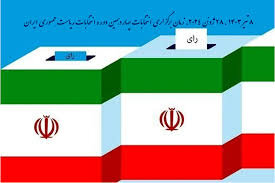
TEHRAN - Analysts experienced both surprise and a moment of anxiety when the list of eligible candidates for Iran's 2024 presidential elections emerged on Sunday.
The list, vetted by the country’s Guardian Council and released by the interior ministry, includes several unexpected figures, as well as individuals who had been considered potential contenders since the demise of President Ebrahim Raisi on May 19th.
Among the disqualified nominees were Ali Larijani, former parliament speaker, and Mahmoud Ahmadinejad, former president, both of whom also failed to be deemed qualified by the Guardian Council to run for president in 2021.
The Ex-Governor of the Central Bank of Iran Abdonnaser Hemmati and Iran’s sixth Vice President Eshaq Jahangiri were also disqualified.
Among those who were not expected to pass muster are Mostafa Pourmohammadi and Masoud Pezeshkian. The two figures are believed to hold moderate and reformist views.
In this article, we will take a look at the 6 individuals that will be vying for the presidency on June 28.
Mohammad Baqer Qalibaf
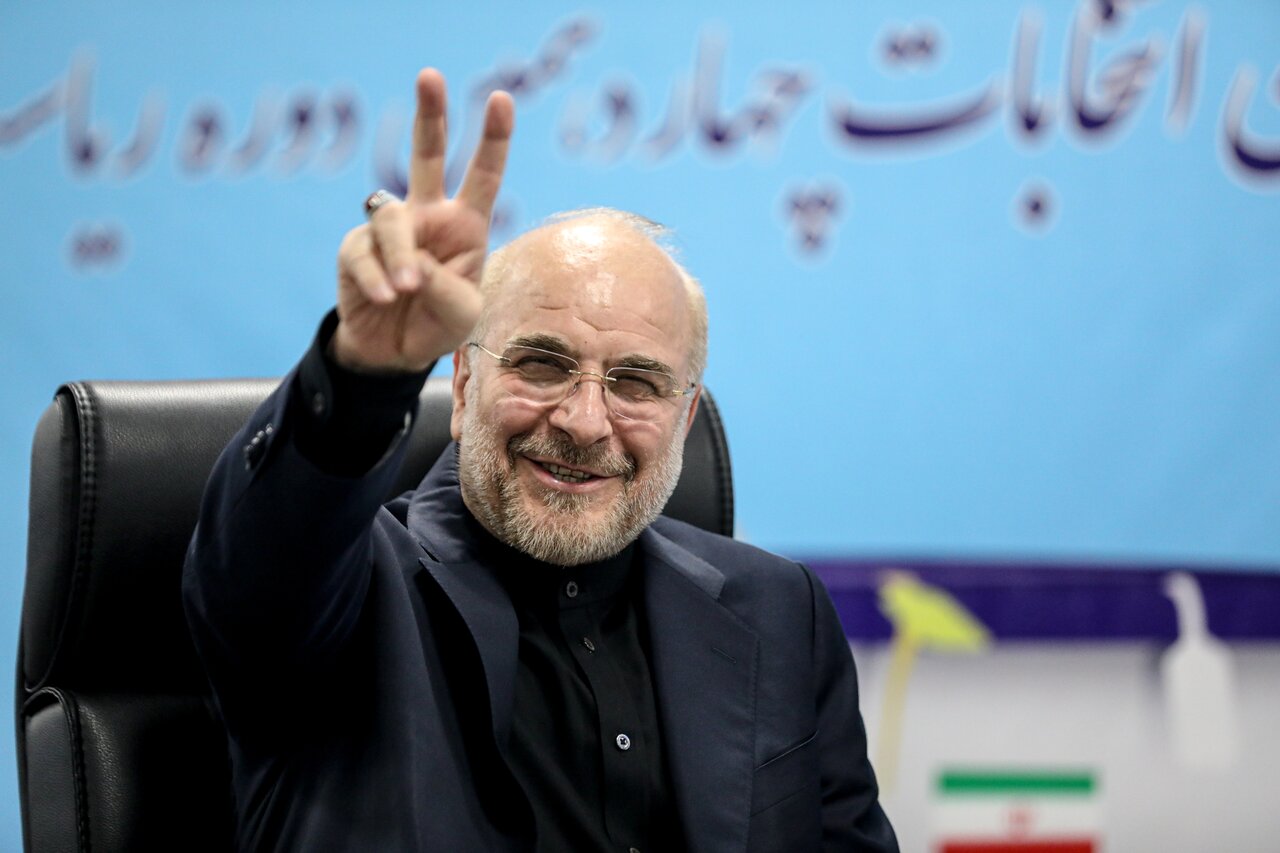
Devoted functionary with renewed presidential hopes
Qalibaf is a well-known figure in both Iranian and international circles. His career began in the military, where he fought in the Iran-Iraq War. At the age of 21, Qalibaf rose to the rank of commander of the 5th Nasr Division, which executed a few of Iran's most successful military operations during the conflict.
Qalibaf continued to serve as a military commander in various capacities before being appointed as Iran's police chief in 1999. His entry into politics began with his election as mayor of Tehran, a position he held from 2005 to 2017. Qalibaf's highest-ranking position to date is as speaker of the Iranian parliament, which he has held since 2020.
The parliament speaker’s supporters tout him as a skilled administrator and a pragmatic politician, which he seemed to highlight in his first remarks after registering as a candidate.
“In the field of managing the country, it is the president who must finish the job with skill and experience and bring the efforts of others to fruition with responsibility and proper leadership,” he wrote on his X account, adding that “the decision of the president changes today and the future of a nation.”
Qalibaf is believed to have the largest number of supporters among the six official candidates.
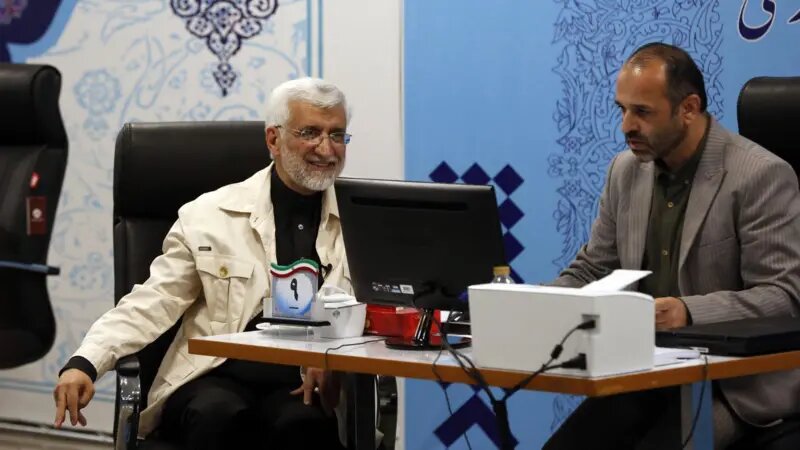
Principalist par excellence
Another foreseen figure on the list of qualified candidates is the Iranian Leader’s Representative to the Supreme National Security Council’s Secretariat: Saeed Jalili
Jalili was the director of the Iranian Foreign Ministry’s Inspection Office in 1995. He entered the ministry after becoming a lecturer at the Imam Sadeq University, where he did his PhD. Jalili’s academic career followed his military service in the Iran-Iraq war, where he lost a leg.
The political scientist’s next positions included being a member of Iran’s National Security Council, deputy foreign minister for European and American affairs, and the secretary of Iran’s National Security Council. Jalili rose to prominence in 2007 when he became Tehran’s chief nuclear negotiator. He is currently a member of the Expediency Discernment Council.
Jalili is believed to have a strong base of loyal supporters. Despite that, he has never enjoyed the level of popularity needed to end up in the presidential office. He ranked third in the 2013 presidential elections and withdrew his candidacy in 2021 in favor of the late Raisi.
Jalili’s latest post on social media talks about the necessity of increasing women’s participation in the workforce, which could be seen as an attempt to rectify his reputation as an ultra-conservative.
Alireza Zakani
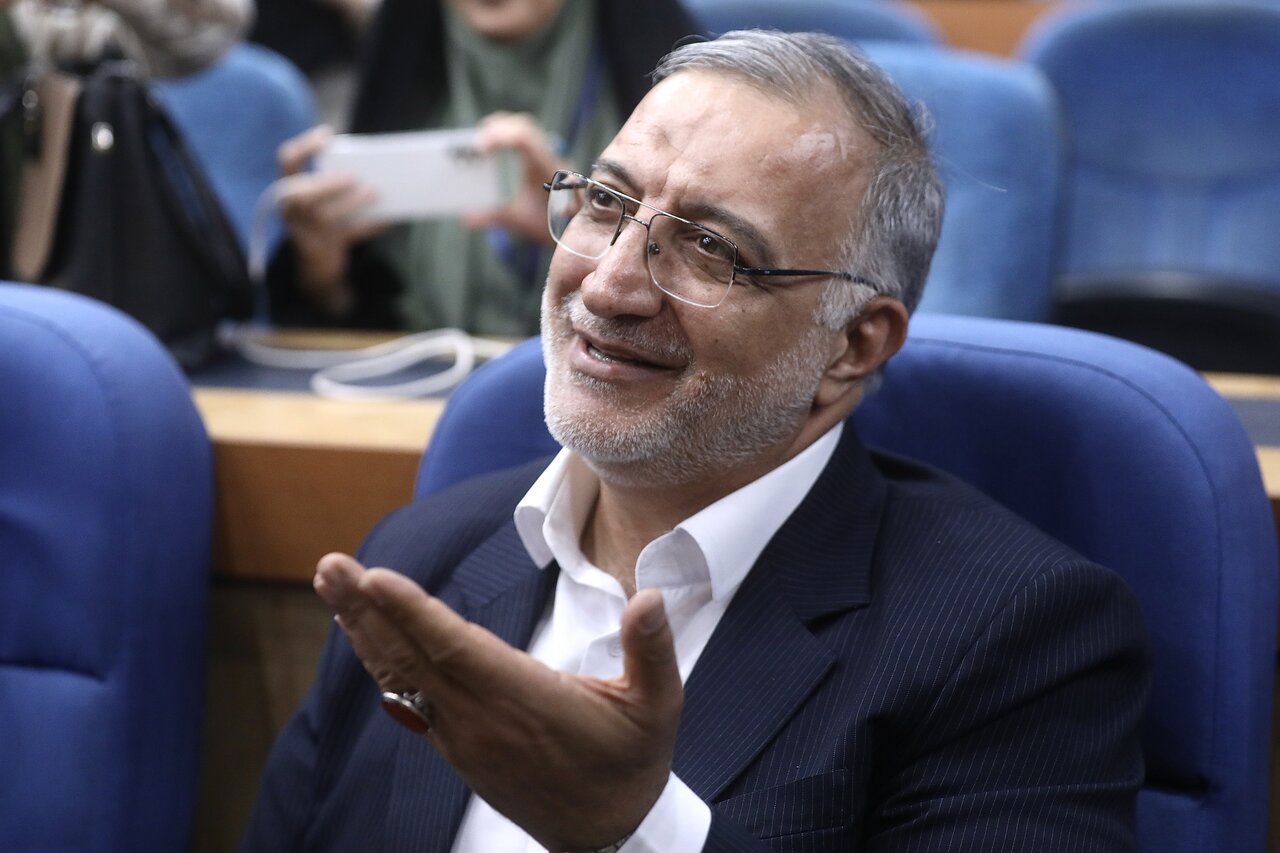
Well-known “revolutionary juggernaut”
Zakani, the current mayor of Tehran holding the position since 2021, is another name that many expected to see on the list.
Zakani’s career as a conservative politician is not as long and impressive as his opponents. He served as a member of the Iranian parliament from 2004 to 2016 and again from 2020 to 2021. His tenure as Tehran’s mayor has also failed to garner him impactful recognition, as it has been plagued with various controversies since his first days on the job.
Despite declaring his candidacy for the presidency in both 2013 and 2017, he was disqualified by the Guardian Council on both occasions. He later became a candidate for the 2021 presidential election, but ultimately withdrew in favor of the late Raisi.
After being announced as an official candidate, Zakani took to social media to declare that he won’t be withdrawing his candidacy this time. “For the sake of continuing the path of Martyr Raisi and completing his services, I will stay till the end of the 2024 elections,” he wrote on X.
Despite his candidacy, the likelihood of Zakani being elected as Iran's next president appears to be relatively low. Compared to figures like Qalibaf and Jalili, Zakani is a relatively new face in the country’s political scene and he has so far failed to establish a reliable base of supporters.
Amir-Hossein Ghazizadeh Hashemi
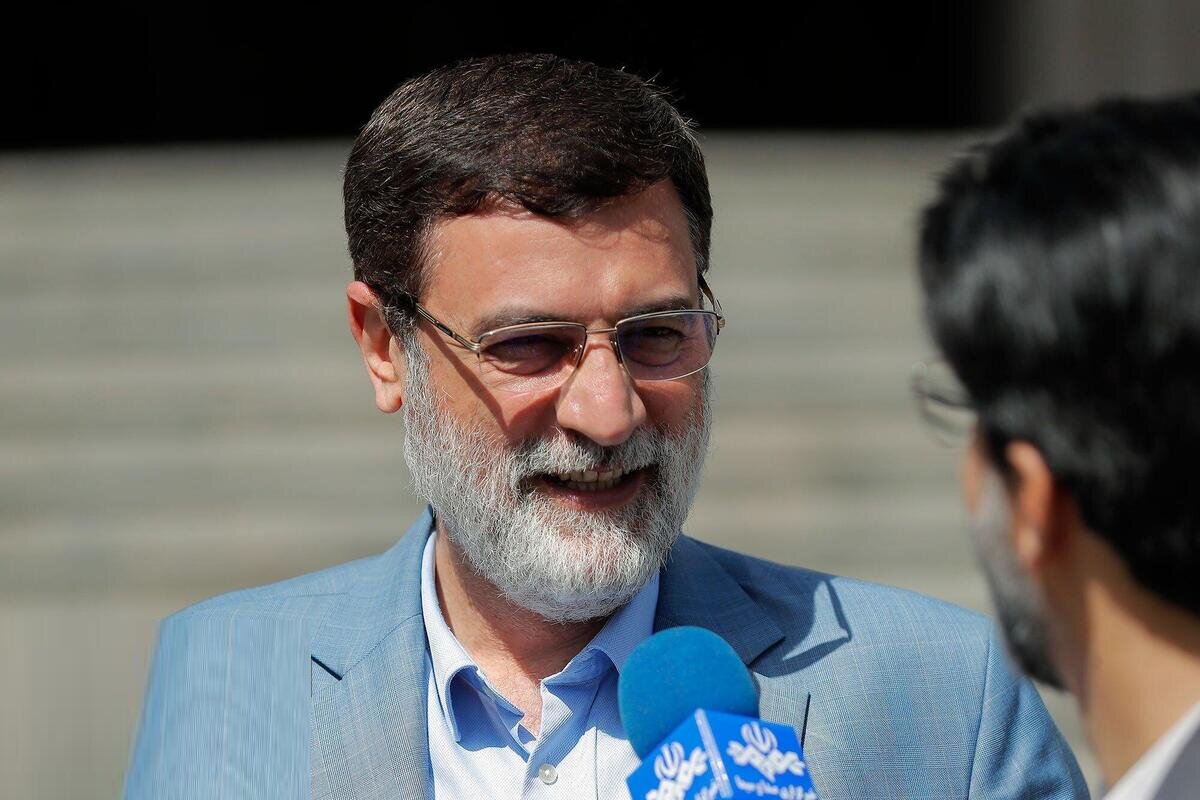
Quiet politician with limited fame
Another candidate on the list who many believe is unlikely to become Iran's next president is Ghazizadeh Hashemi. He currently serves as the head of the Foundation of Martyrs and Veterans Affairs. Prior to that, he represented the Mashhad and Kalat electoral district in the Iranian Parliament from 2008 to 2021. He is an ear, nose, and throat surgeon by profession.
Ghazizadeh Hashemi holds conservative views. He was the spokesperson of the “Front of Islamic Revolution Stability” which is a well-known principlist political group. He is currently a member of the Qanoon Islamic Party, another conservative faction.
Ghazizadeh has announced that his administration would be a government dedicated to family. “The future development of the country hinges on the all-round growth of the family. I hold myself responsible for solving the concerns of mothers, fathers, daughters, and sons of the Iranian family,” he stated adding that different politicians should refrain from engaging in disputes, and instead focus on bringing an end to the woes of the Iranian people.
Similar to Zakani, Ghazizadeh Hashemi lacks a long and well-known political career. However, unlike Zakani, he has not been embroiled in any controversies or suffered reputational damage. Analysts believe he most probably is not the future Iranian president.
Mostafa Pourmohammadi
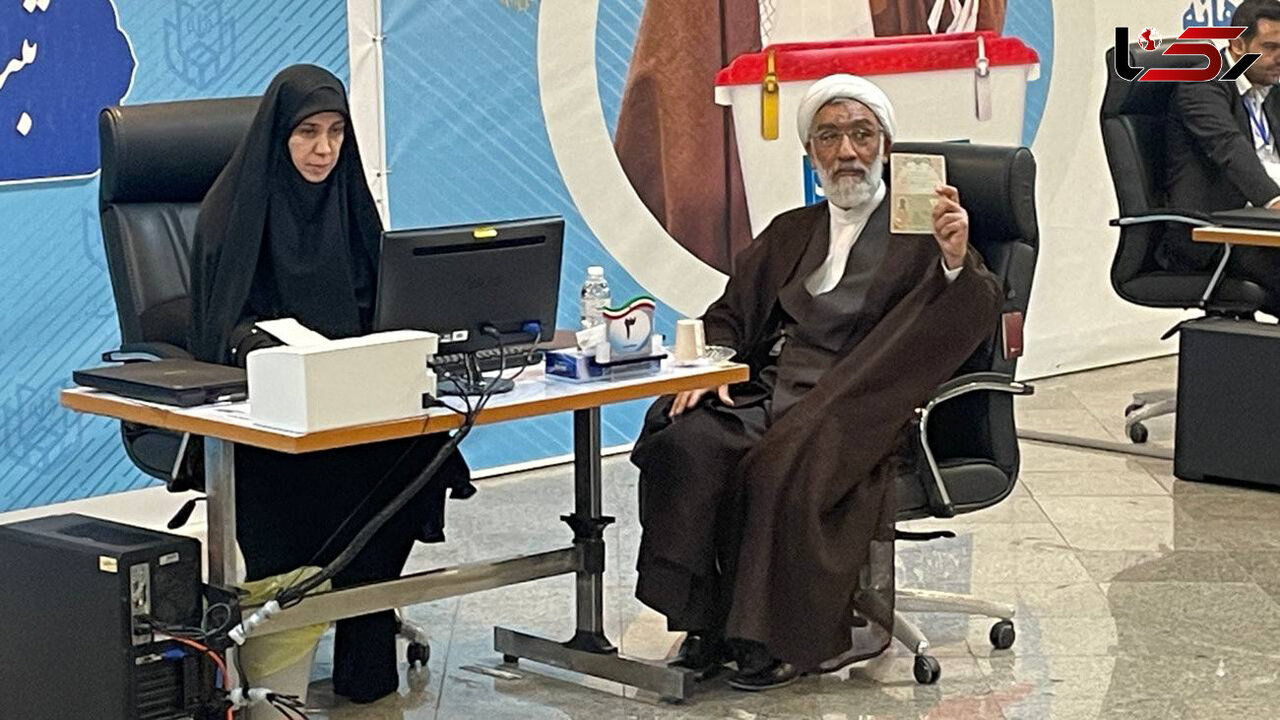
Back into political life
Pourmohammadi is a figure, not many people expected would become an official candidate. Before the announcement of his candidacy, Iranians had probably not thought about him for a few years.
Pourmohammadi began his career as a prosecutor in the Revolutionary Court, rising to become deputy intelligence minister under President Rafsanjani. He also served as acting deputy minister of intelligence and head of the political and social department of Leader of the Islamic Revolution Ayatollah Seyyed Ali Khamenei’s office.
In 2005, Pourmohammadi was appointed interior minister by President Mahmoud Ahmadinejad. He held his position until 2008.
Pourmohammadi later became head of Iran's general inspectorate office. He ran for president in 2013 but withdrew. In the same year, he was appointed minister of justice by President Hassan Rouhani, a position he held until 2017.
In his first public statement on Sunday, Pourmohamadi warned that “the current condition of the country leaves no room for trial and error” while quoting a verse from Persian Poet Saadi Shirazi which advises employing experienced and distinguished figures to get important matters done.
Masoud Pezeshkian
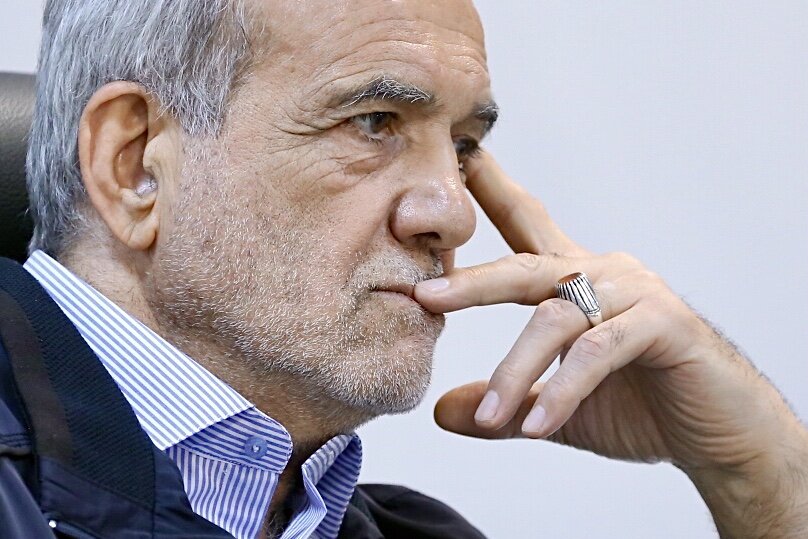
A Cardiologist with a Reform Agenda
A heart surgeon by profession, Dr. Masoud Pezeshkian stands out as the only reformist candidate on the ballot. He boasts a decades-long history of public service within the Reformist faction, including his tenure as health minister under President Mohammad Khatami.
Pezeshkian is currently a parliament member, representing Tabriz, Osku, and Azarshahr. Besides being a lawmaker, he served as the Iranian parliament’s first deputy speaker from May 29, 2016, to May 26, 2020.
Throughout his political career, Pezeshkian has consistently called for unity among different political groups. He believes that "Iran’s strength is in unity" and that it is essential to "accept the existence of differences of opinion and tastes" in order to achieve the goals and policies of the system and leadership, such as leadership in science, development, and regional progress.
The approval of his presidential bid by the Guardian Council came as a surprise, considering his outspoken mode of criticism of public malaise.
Some believe that Pezeshkian has the potential to pose a serious challenge to his five conservative rivals. Analysts believe that a duel between Pezeshkian and Qalibaf might be on the way.
Upon the announcement of his candidacy, the reformist met with some prominent figures of his political factions.
